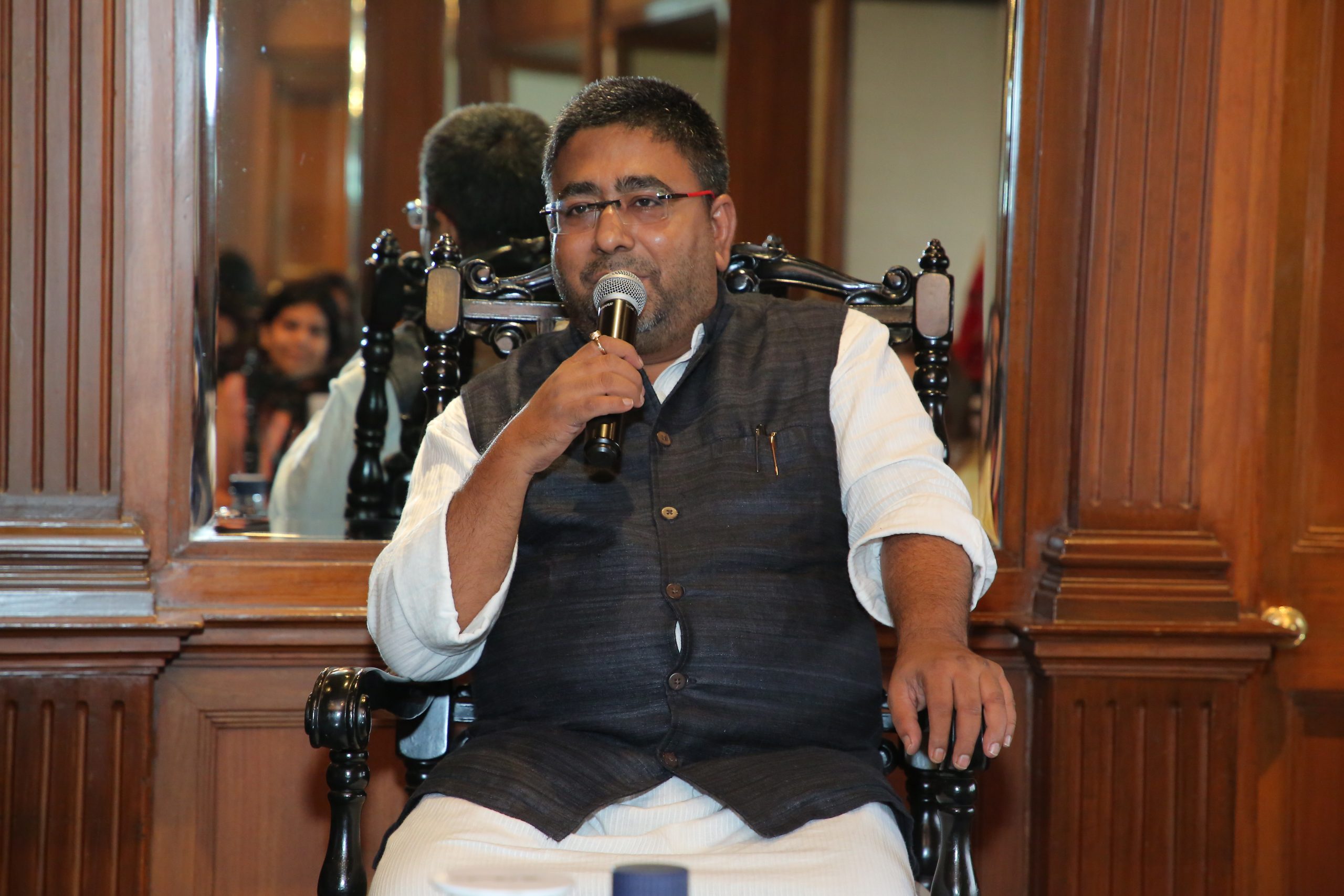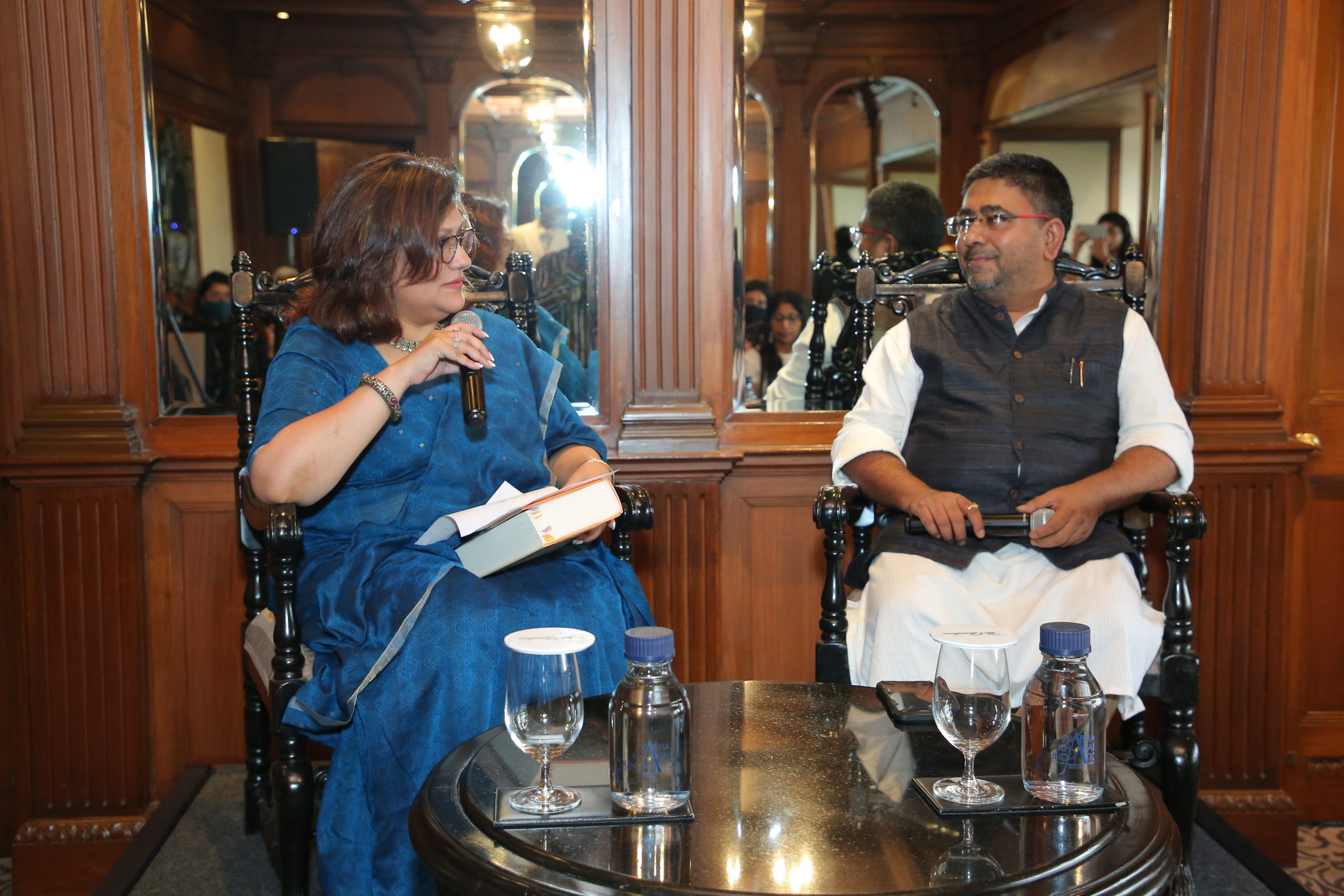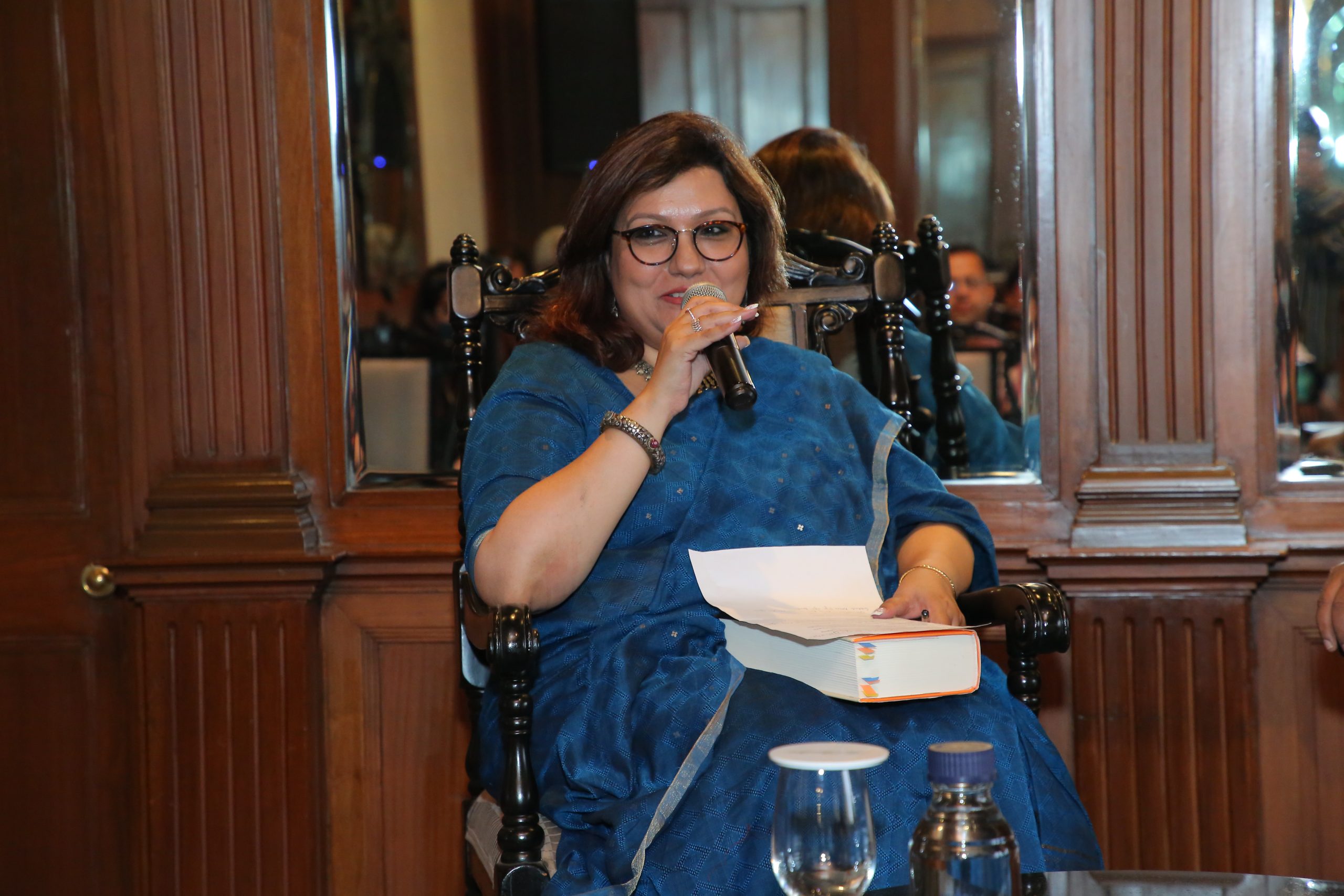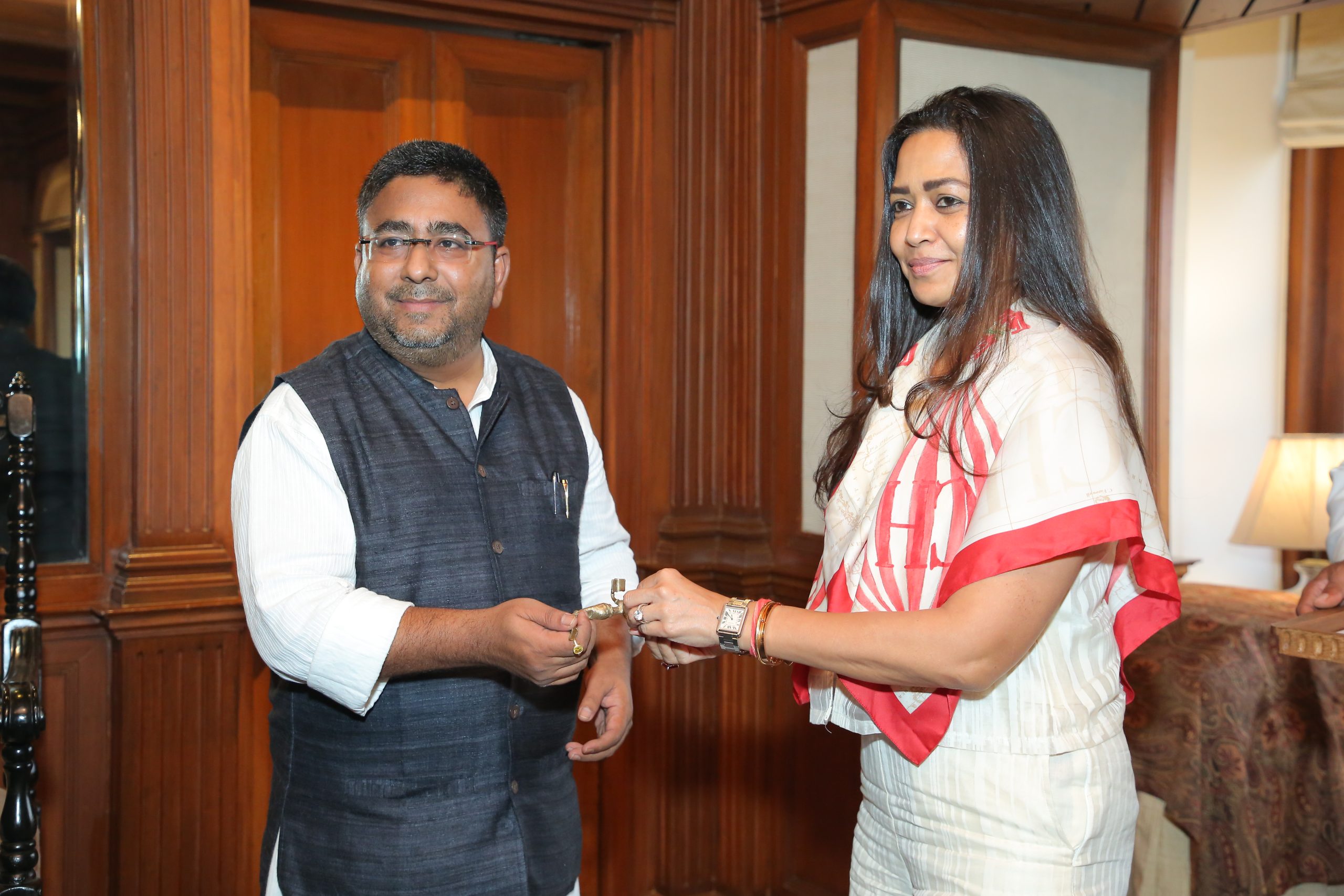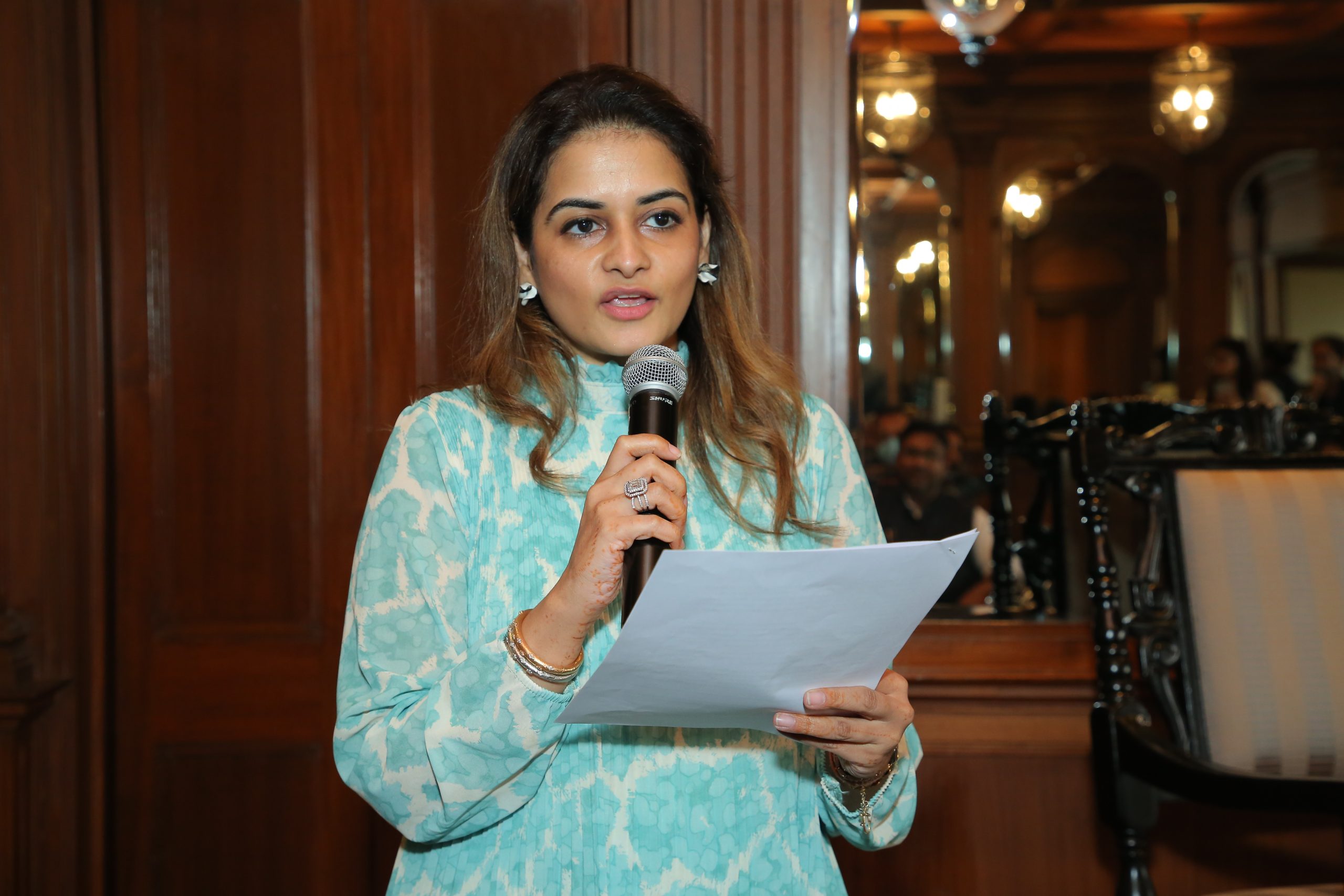“The disappearance of Netaji Subhas Chanda Bose has bothered generations of Indians. Eighteen years ago, in 2004, a few friends and I decided that we needed to find out what happened to Netaji—something that nobody has been able to conclusively establish. Did he die in a plane crash? Did he survive? If he did, what happened to him after that?” These were some of the questions and points raised by best-selling author, researcher and commentator on history, Chandrachur Ghose, as he talked about his book, Bose: The Untold Story of an Inconvenient Nationalist, at a session of An Author’s Afternoon, organised by Prabha Khaitan Foundation at the Taj Bengal. Ghose was in conversation with educationist Mohua Chatterjee, and the speaker and moderator were introduced to the audience by Shefali Agarwal, Ehsaas Woman of Kolkata.
“I had never imagined that I would, one day, take up writing as a career,” said Ghose, throwing light on his formative years. “Much like everyone else in my generation, while growing up, I had to aspire to become a doctor or an engineer and so on. But writing was something that has always been a part of my DNA. I was influenced by my grandfather, a freedom fighter, and his father, who was a journalist. I had grown up with books around me all my life.”
Writing remained a part of all of Ghose’s occupations later on in life. “When my fascination with and interest in Subhas Chandra Bose grew manifold, I realised that there were a lot of stories about him that have not been brought to the fore,” said Ghose. “They either stay hidden, or they remain untold. I felt that they had to be told, and as I began compiling them, I realised that these stories portrayed the man in a more complete manner. It is only through a complete picture painted by such stories that you get to see this great personality standing right in front of you, almost as if in flesh and blood. What Netaji was trying to do, what his vision was, which way he was trying to go—that story needed to be told. His journey from being a very impatient man to a global statesman had to be captured. And at every stage he was evolving; that is the story I wanted to tell. This is how the journey of writing the book materialised for me.
Ghose also elaborated on why the title of his book refers to Bose as an ‘inconvenient nationalist’. “Part of the answer to this lies in the fact that the declassification of the documents pertaining to Netaji happened in 2010, and then in 2015-16—not before that,” said the author. “Even the INA files were declassified in 1997-98. Before that, there was very little archival material about Bose in the public domain. Why was this so? If you follow the mainstream political discourse of our country, you’ll find discussions around the ideas of Jawaharlal Nehru, M.K. Gandhi, Ram Manohar Lohia, Jayaprakash Narayan and B.R. Ambedkar—but Subhas Bose is missing. This is very surprising, because Bose was one of the leading thinkers of his time. He did not just think about political strategies, but also political principles. He was framing his own ideas. How could he be so inadequately represented in the archives in a country that is riddled with problems pertaining to literacy, health, communalism and so on? The answer lies in the fact that Bose delved deeply into issues like poverty and education, and did actual work instead of being a political preacher. He paved the way forward with his actions—that tells you why Bose is considered an inconvenient nationalist.”
Ghose also regaled his audience with anecdotes about Netaji. “There are multiple instances when Bose stayed a step ahead of the British. He had his own network that kept him well informed, and he was the only one who was capable of hoodwinking the British government the way he did.” As the afternoon progressed, Ghose revealed that in his quest for the truth about Netaji, he realised that everything he had learned about the man differed from the conventional image that the general population has been led to believe. “Even today, the first image of Netaji that comes to mind is what is probably the worst statue of him in the world—the one at the Shyambazar crossing in Kolkata. I wanted to break that image. Bose is not a horse-riding, sabrerattling figure—he is a lot more than that. Prevalent images and themes about him had to be destroyed, and that was the only objective of my book.”
A short Q&A session followed, after which Ghose signed some copies of his book for the audience. Several attendees expressed their satisfaction with the event. Agarwal, who had introduced Ghose to the audience, said, “It was very interesting to learn that a lot of information relating to Netaji is yet to emerge in the public domain. I was also intrigued to learn what other political leaders thought of him. Netaji has always been important to all of us, and when someone takes so much effort to study him and present the research for us to appreciate, it makes for an enriching experience.” Farhan Khan, Director of Sales and Marketing at Taj Bengal, concluded the afternoon’s proceedings with his own thoughts. “It is always interesting to know more about a figure that the entire nation holds in such high regard,” he said. “Seeing our Netaji in an altogether new light was very special.”

